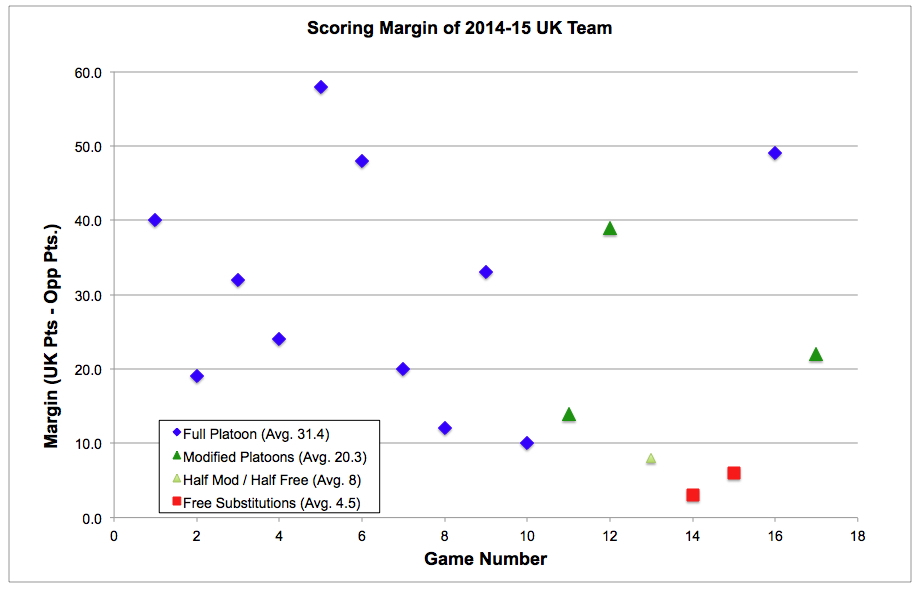So, basically losing Poy and the platoon hurt 2015 UK significantly.
Certainly losing Poythress was a problem, but my argument is that UK still could have continued to platoon and had been successful even after Poythress' injury. Why do I think that? Because for many of the games after he went down they largely did continue to platoon and were still very successful. (not as successful as early on but still extremely good and better than any other Calipari team has performed.)
It was only when they went away from platooning that their efficiency began to sputter. I mentioned that during the season, soon after Poythress went down, I started to track UK's substitutions because I felt strongly that the benefits of continuing to platoon far outweighed any negatives, especially compared to going back to a standard Calipari lineup.
Below is the data comparing the different styles and the resulting point differentials.

Obviously I don't expect UK to maintain a +30 point differential running platoons but even with some form of modified platoons they were still very effective.
What was clear was that just going with free substitutions, which Cal predominantly did against Ole Miss at home and Texas A&M on the road (teams that ended up 5th and 6th in the SEC) was not effective. Both those games went into overtime.
As mentioned, around that point I gave up trying to track how the team performed because it became increasingly difficult to characterize Calipari's substitution patterns. He might start with platoons for two or three rotations but then cut it short, or started to pull individual players etc.

